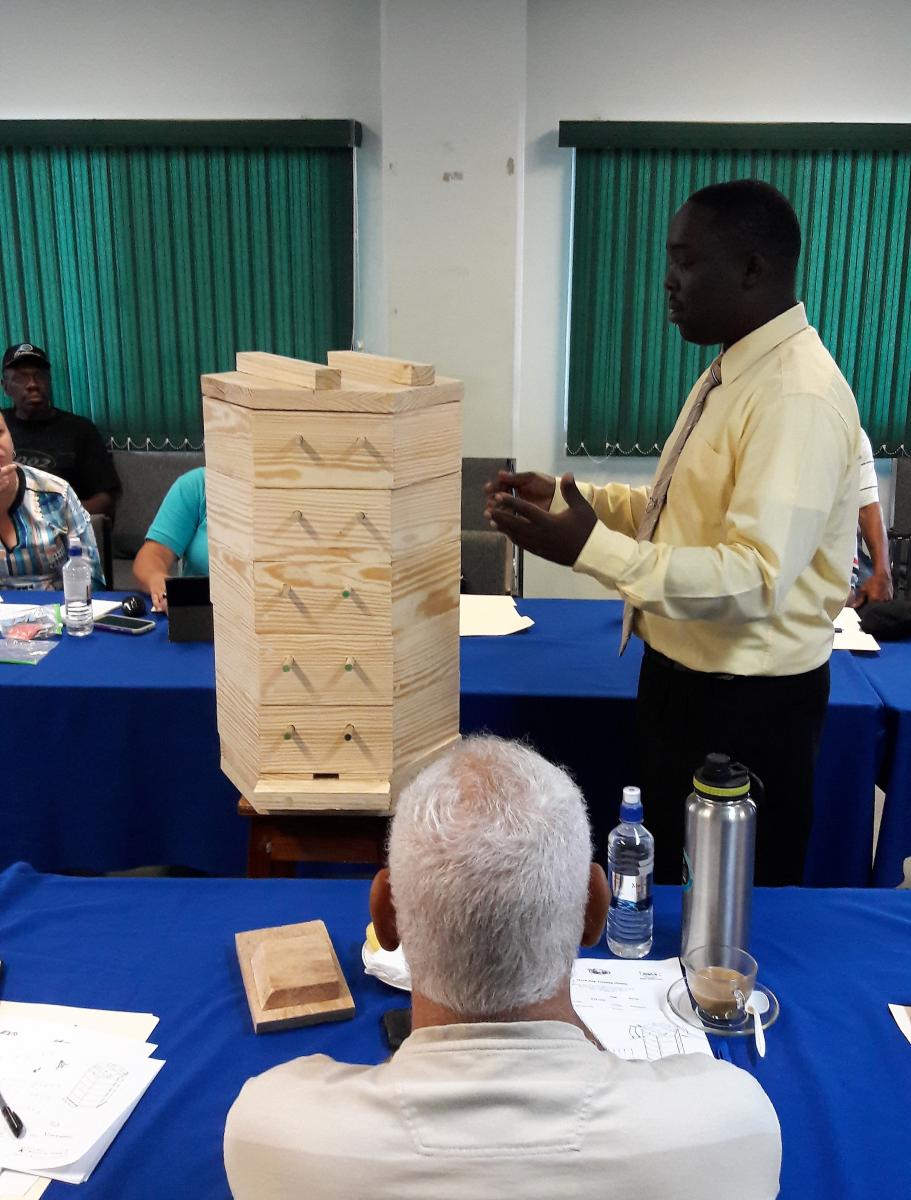A new initiative could help beekeepers to lower their production costs, increase wax production, produce higher quality honey and improve their commercial opportunities.

Kingstown, 30 May, 2017 (IICA). The Inter-American Institute for Cooperation on Agriculture (IICA) and the St. Vincent and the Grenadines Beekeepers Association and the Ministry of Agriculture, Forestry, Fisheries and Rural Transformation (MAFFRT) are embarking on a new initiative to introduce the concept of perm-apiculture to local beekeepers, as part of a strategy to encourage the adoption of more sustainable systems for beekeeping.
The main feature of the new initiative is the introduction of the Perone Hive. The innovation brings with it several advantages for the beekeepers including: lower production cost, increased bee wax production, control of pest and brood diseases, promotion of the use of organic practices and ultimately, higher quality honey.
“Perhaps the most important early advantage seen by the producers is the increased production of beeswax; this is an important input into their production process as almost all of it is currently imported. Therein lies a commercial opportunity which is eagerly being anticipated by some producers as an input for beekeepers and for other industries”, affirmed the technical specialist of IICA in St. Vincent and the Grenadines, Michael Dalton.
Through this action, perone hives would be constructed and established on four existing apiaries, allowing for evaluation by beekeepers of the potential and possibilities of this method of beekeeping. In the process, 26 farmers are to be trained in this methodology through a series of classroom and field activities to ensure proper transfer of the innovation.
At the opening workshop, beekeepers were exposed to the theory of perm-apiculture as well as to the new perone hive boxes. The forum provided much food for thought as to how locals could adapt the method to their context. This activity has set the stage for all future activities under the project.
This initiative falls under IICA’s Family Agriculture Project, which seeks to support the sustainable development of family farms and increase their contribution to food and nutrition security and the rural economy.
More information:
Michael Dalton, IICA’s Technical Specialist in St. Vincent and the Grenadines











